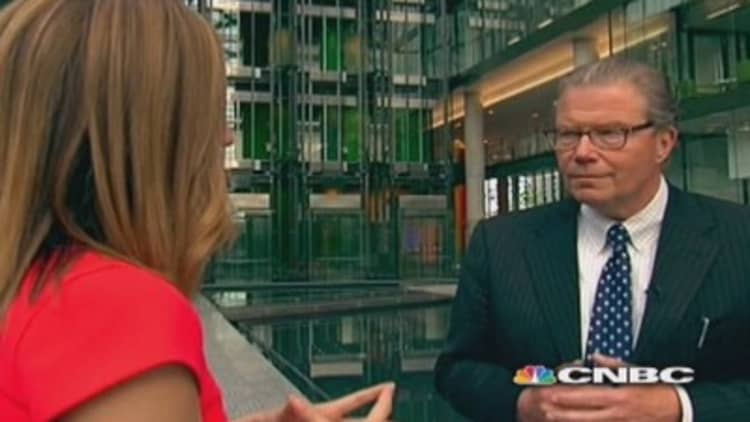
As AstraZeneca's shares tumbled following its rejection of Pfizer's increased bid, the company's chairman told CNBC that shareholders had the right to "vote me away" if they were unhappy.
Leif Johansson said that AstraZeneca had engaged with shareholders over the bid and was happy that the decision to reject the deal was the right one.
Pfizer has pursued its U.K. rival for months, in its attempt to create the world's largest drugs company. On Monday, AstraZeneca's rejected the U.S. giant's "final" bid of £69 billion ($116 billion), worth £55 per share.
The move saw shares in AstraZeneca drop by up to 13 percent on Monday, however, and by late-afternoon London time, shares were down 11 percent at £42.87. Pfizer shares traded 1.3 percent higher.
"We have engaged with shareholders all through May so I think we are reasonably confident … it is the right move," said Johansson.
"If shareholders aren't happy with that then we need to continue to engage with them and continue what we are doing… shareholders have the right to vote me away."
AstraZeneca told Pfizer it would need an offer of £58.85 per share to consider a deal, which Johansson explained was because shareholders had insisted the board must indicate at what price it would consider a deal.
"We had very strong feedback that we could not only say no to increasing offers, we needed to establish what the gap was," he told CNBC.
He added that the proposed deal had "disruptive elements", none of which had been addressed by Pfizer.

Nonetheless, some AstraZeneca shareholders expressed disapproval of the deal rejection. Jupiter Fund Management, a top 30 shareholder in AstraZeneca, said it was "disappointed" by the refusal to engage with Pfizer.
However, Sweden's Investor AB, which holds a stake of around 4.1 percent in AstraZeneca, told CNBC it supported the board's move to reject Pfizer's revised offer.
The deal talks have proved controversial in the U.K., with politicians lining up to criticize Pfizer's previous record in takeovers. In response, Pfizer has pledged to keep at least 20 percent of the merged company's research and development in the U.K. for five years after any successful bid.
"These are important issues for governments… that is a natural controversy to have," said Johansson, who was appointed to his post in April 2012.
Some analysts concurred with AstraZeneca's view that the offer undervalued the company.
"Pfizer is certainly undervaluing the firm and we do not think they are offering what the company really worth," said Naeem Aslam, chief markets analysts at Ava Trade, in a Monday research note.
"Moreover, there is strong possibility that after the merger the company will spin off some of the business in AstraZeneca and sell them off separately. What we do need is a decent offer from Pfizer, which does not undervalue the performance and number of new drugs in the pipeline."
Savvas Neophytou of stock brokerage Panmure Gordon forecast the deal would fall through. He downgraded AstraZeneca stock to "hold" from "buy" as a result.

